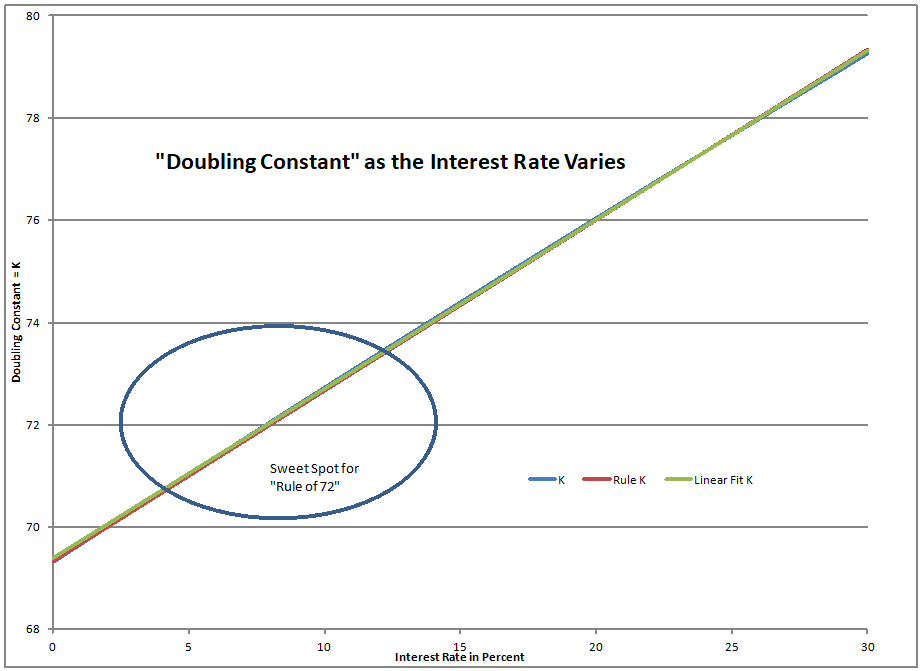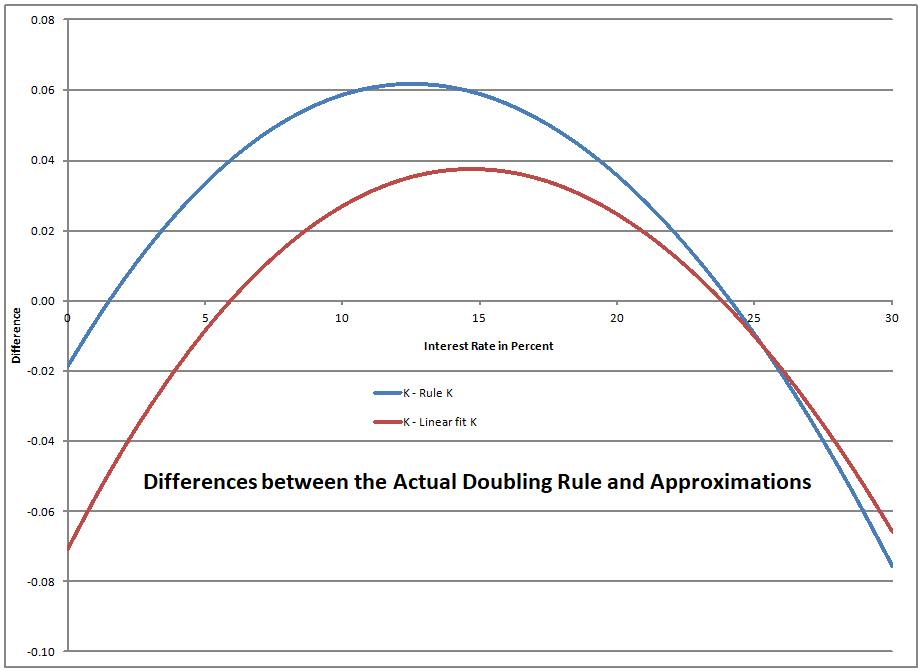Sorted Weekly Tweets
Companies
- Intel shares slid in late trading after the chipmaker gave a dire forecast for the current quarter https://t.co/hClfp9Y1C9 $INTC lost its way in the 2000s, and did not respond effectively to changes in new chip designs & uses. Most of my computers don’t have Intel chips. Jan 27, 2023
- The rate of returns at U.S. retailers more than doubled last year from 2019. What are the best ways for companies to deal with this flood? https://t.co/nTbNIGFKam Well-written article. Makes perfect sense. Jan 27, 2023
- The legacy of Jack Welch lives on as forced rankings endure despite controversy https://t.co/KDR5e2EYxM It’s true that putting constraints on surveys makes them more accurate on average, but the effect on culture is bad because it harms teamwork. Jan 27, 2023
- Elon Musk is upending the way that Twitter works. Ella Irwin is in charge of making his impulses a reality. https://t.co/9B2KrhbjNv This will eventually result in lawsuits and laws limiting Twitter. Self-regulation is the best defense against external regulation Jan 27, 2023
- When you can’t speak to the manager — or anyone https://t.co/B23satO6kM In the short-run it saves money not having a call center. In the long run you lose customer loyalty, and don’t get feedback on how to improve. Jan 26, 2023
- It takes an enormous amount of processing power to keep ChatGPT running https://t.co/tCtpfQ3aLh So OpenAI stays near $MSFT — it minimizes their costs Jan 26, 2023
- Giving four months’ notice or paying to quit has workers at a health-care company feeling trapped https://t.co/mfYdvI5P8s If training is specific to the company, it benefits the company, so the laborer does not benefit, and should repay. Opposite for general skills Jan 26, 2023
- Heard on the Street: Johnson & Johnson’s consumer business was the only division to deliver growth in the fourth quarter https://t.co/AjchC9YOkO Surely they could have come up with a better name than Kenvue? Jan 25, 2023
- Crypto companies seeking to go public over the past year have faced increased scrutiny from the Securities and Exchange Commission https://t.co/e5Bod8Y4jp Highly speculative companies get more scrutiny. Jan 24, 2023
- Twitter is being sued for allegedly not paying the rent on its headquarters, adding to the legal battles between the social-media company and vendors since Elon Musk took over https://t.co/uAtdtLWBzT Elon likes to see what he can get away with. You can’t cut your way to greatness Jan 24, 2023
- Allstate plans to tap the pool of recently fired tech workers to help the insurer overhaul its business https://t.co/Jtc6c76qx6 Most IT developers would find most insurers to be pretty stifling. In all the insurance firms I worked, only one division of one company got IT right. Jan 23, 2023
Market Structure Issues
- Meet the 11 ordinary twenty-somethings with $250 billion riding on their lives https://t.co/l69SlZqLwC This is bizarre. Sometime between 2070 and 2110, this will have to be restructured $SPY Jan 27, 2023
- Heading into Tuesday, a NYSE employee failed to properly shut down a disaster-recovery system — leading to a disaster https://t.co/ZUFpA84Eag If you always trade with limit orders, this wouldn’t be a big deal. Market orders are risky. Jan 26, 2023
- About 9% of outstanding US leveraged loans tied to Libor have no successor listed, but businesses may use extensions past the June 30 phaseout deadline https://t.co/Qr9PdTxJQp Five months left on the grand experiment. Will SOFR be able to absorb the stress and hedging? Jan 26, 2023
- Wall Street firms that help issue ABS wouldn’t be able to bet against those products under a Securities and Exchange Commission plan https://t.co/kfi4j40i6Y Sometimes dealers sell bonds to clients via shorting as a service to clients that wanted more. Is that disallowed? Jan 26, 2023
- Private companies desperate for cash as economic conditions sour are cutting confidential deals to avoid a dreaded down round https://t.co/cPbAL1K7GK Kicking the can down the road, or, living to play for another day? Jan 25, 2023
- Josh Kushner is richer than Donald Trump after billionaires back his investment firm. https://t.co/38CuybHp7I be careful of measuring wealth off of small financing rounds, or stocks with small floats. Jan 25, 2023
- Question of using term SOFR for ABS remains unresolved in 2023 https://t.co/hU1QhKLfVC Lenders want predictability, even if there is some amount of basis risk — thus the desire for term rather than floating. This should get ironed out through futures markets. #LIBORwasbetter Jan 25, 2023
- A Depression-era backstop that Wall Street banks use for short-term funding is the latest corner of traditional finance to be ensnared by upheaval in the crypto industry https://t.co/IEnVkbTpoq The Federal gov’t has too many entities that lend money, guarantee, etc. Jan 25, 2023
- A chaotic open for some stocks listed on the New York Stock Exchange sent chills across Wall Street, leaving some investors frustrated and others clamoring for an explanation https://t.co/81wbDOjyrV I had two stocks halted. No big deal. Wait a little, and markets were normal. Jan 24, 2023
- The last time hedge funds and asset managers were this split on the future for benchmark Treasuries was when the Fed’s tightening cycle was about to peak in late 2018 https://t.co/0R3k0DViL7 Usually the guys that are levered up lose Jan 23, 2023
India
- India’s integration into the global economy means the next big scandal may well be London or Singapore, rather than Mumbai, @andymukherjee70 writes https://t.co/iuLYhx1a8m Much as the SEC has its weaknesses, isn’t the Securities and Exchange Board of India considerably worse? Jan 27, 2023
- Talk of cronyism misses the point. If Adani didn’t exist, the Indian government would have had to invent him in order to fulfill its development ambitions https://t.co/rxffQ1B6uW Relying on “big men” to run businesses is dangerous to any economy. It’s one reason India stays poor Jan 27, 2023
- India’s Adani slammed by $48 bln stock rout, putting share sale at risk https://t.co/OvQLXRe2sz Complex holding company structures with lots of debt are inherently fragile, dependent on liquidity being easily available. Jan 27, 2023
- “Largest Con in Corporate History?” Nate Anderson’s Hindenburg is betting on it as the firm targets Asia’s richest person Gautam Adani https://t.co/ss3SZwlpVC Any complex company that compounds at too high of a rate for its industries is suspicious. Think of Enron. Jan 26, 2023
- India’s Adani Group explores legal action against US investor Hindenburg Research after its report accused firms owned by billionaire Gautam Adani of “brazen” market manipulation and accounting fraud https://t.co/FtdOdF9GhZ Fighting short-sellers is often a sign of weakness Jan 26, 2023
- Adani Group’s shares fall after Hindenburg Research issued a report and said it had taken a short position in the company https://t.co/qT29MJsgZf Conglomerate, price rise too rapid, lots of debt –> too much risk. Jan 26, 2023
- “India is on the cusp of huge change.” How soon can a country once synonymous with red tape become a $10 trillion economy? https://t.co/PlD05lJ2S9 This isn’t likely. India has deep cultural problems that hinder them from developing. India is an empire more than a nation. Jan 23, 2023
- From soap to paint, optimism for a harvest-led revival is laced with nervousness about urban spending https://t.co/0r1WHEABFN Among other problems, “India’s software-exports industry — a large employer in metropolises — has become wary of hiring because of slowing global growth.” Jan 23, 2023
Portfolio Management
- Happy 30th birthday to the ETF* https://t.co/m1hGrVswFV Nathan Most, the man who changed the structure of fund investing by creating $SPY. Jan 27, 2023
- The Buck Stops Here https://t.co/ukhvcQG0nt Worth considering. The US has outperformed for a long time, and the US Dollar is weakening as the Fed decelerates Jan 26, 2023
- Vanguard’s 10-Year Equity Outlook https://t.co/SjTITqtoqg All the non-US equity estimates are at least 3%/yr too high, commodities & non-US could be accurate. Jan 26, 2023
- ChatGPT was asked to create a market-beating ETF. Turns out AI has a long way to go https://t.co/kMJB59xPJc ChatGPT is remarkably humble. Jan 26, 2023
- Adding to that, bond ladders are the all-weather strategy for handling all aspects of interest rate risk. https://t.co/7ggbuMnL0q Jan 25, 2023
- Beware: even cash and bonds can land you in a fix https://t.co/tjEGYtnD1Z A good introduction to the concept of reinvestment risk. In this environment, you get a higher yield by investing short, but when the bond matures, will you get a good yield to reinvest at? Jan 25, 2023
- This Changes Everything for Hedge Fund Managers https://t.co/Uj4vuyEKcl ‘“The higher the cost of money, the lower the competition,” says Avenue Capital’s Marc Lasry on the risk-free rate.’ You have to be more selective as to who can afford the high interest rate Jan 25, 2023
- Why Invest in Stocks When Bond Yields Are Higher? by @awealthofcs https://t.co/DxUb55SwmD Probably the only ones buying long bonds at the rates peak in 1981 were those that had to defease/hedge long liabilities. Everyone else was too scared. So life insurers, DB pensions… Jan 25, 2023
- The Bank of England warned that life insurers are taking an “optimistic” view of how easily they could ditch assets in tough times https://t.co/Wk4gHZp8Mr Depends on how big the positions are relative to the market, & sadly, the article does not give that stat. Jan 23, 2023
Fraud
- $4 Billion Accounting Scandal Exposes Supplier Finance Risks https://t.co/TpXAL3MToM Caldor returns! Jan 27, 2023
- Crypto Speculators Are Betting On Ethereum’s Shanghai Upgrade Risks https://t.co/LM0ndJEhyJ Ask where the yield comes from. These strategies blew up in 2022, and will do so again in 2023-4. Jan 27, 2023
- What the poet, playboy and prophet of bubbles can still teach us https://t.co/qQu5XrPyGH How Charles Mackay, author of “Extraordinary Popular Delusions and the Madness of Crowds” described bubbles, but couldn’t see the biggest one of his time: railroad securities. Jan 26, 2023
- The Getty Family’s Trust Issues https://t.co/KkeXoSFnnn Very long. I knew half of this, and it reinforces two of my beliefs: tax all income types equally, and abolish all tax deferral. Jan 25, 2023
- Digital-asset wallet linked to one of crypto’s biggest hacks has moved over $150 million of stolen funds to tap a trade involving a derivative of Ether https://t.co/2F69VAZahc From crypto news today, remember that security is always weakest at endpoints, where transfers are made Jan 24, 2023
- Spyware that can turn even the most secure of phones into surveillance devices has become affordable enough that lawmakers are starting to do something about it https://t.co/yEy28x3oon Is there really no way to scan for these zero click hacks? Jan 24, 2023
- Thinking of buying crypto on the dip? @LionelRALaurent suggests you take note of authorities’ accelerating crackdown https://t.co/2dX3L3FbB3 No social value to crypto, aside from ransoming yourself from authoritarian regimes Jan 23, 2023
Energy
- Scientists Are Turning Abandoned Mines Into Gravity Batteries https://t.co/PoAugP2e3Z Physical batteries have a lot of advantages Jan 27, 2023
- Man-made graphite isn’t very green, so battery makers want the mined, natural mineral. The problem is there isn’t enough. https://t.co/7yQesrsNHf “It’s the largest raw material in the battery.” Though not the most expensive… it can be synthesized if mines can’t produce enough Jan 25, 2023
- This giant underground battery is a $1-billion clean energy solution https://t.co/6Wg88Q7SqW Compressed air drives a turbine when power is needed. Clean, right? No one would argue against this? Wrong. Jan 25, 2023
- Construction of wind and solar installations has slowed to a crawl in the US, despite billions of dollars in federal tax credits and investor enthusiasm for clean-energy projects https://t.co/yxrYY84yWR When many want to do the same thing, bottlenecks appear & delay ensues Jan 24, 2023
- Nuclear reactors are being pushed to operate for more than double their intended lifespans. It’s a risky experiment with global consequences https://t.co/JtYhXZEWbB Choices, choices — do the maintenance well. Schedule downtime. Jan 24, 2023
- An increasing number of wind turbine malfunctions are indicative of green power’s growing pains https://t.co/RJLwfqIW20 There is probably a limit to how large you can make turbines without smallish flaws cascading into large failures. Jan 23, 2023
CMBS / CRE
- Office Dominates New Transfers as CMBS Special Servicing Declines in December https://t.co/DyFCFkzQGO One year ago, I bet the owners did not think rates would get this high. Jan 25, 2023
- Refinancing Tough as CMBS Maturities Pile Up in New York City https://t.co/EJrmmDrDEA Facing the end, of extend, and pretend. Jan 25, 2023
- CMBS Realized Losses Increased in December https://t.co/ToWWYtZkPt Interesting. Many of the losses took 5+ years to work out. The biggest loss took over 10 years, with 100% severity. Jan 25, 2023
- Expiring Interest Rate Caps to Fuel Distressed Property Sales https://t.co/jZyDmEP7Jx Will your rents cover higher financing costs? Jan 25, 2023
- $9B plunge in NYC commercial real estate sets up brutal political fight over shrinking tax pie https://t.co/x27iLbUJqc Not so many office buildings are needed as before Jan 25, 2023
- Surge In ODCE Fund Withdrawals Is Another Worrying Sign for Commercial Real Estate – https://t.co/VlYRaEtnvP You will get money… just not as much as you would like, nor as quickly. Jan 25, 2023
Non-US
- Brazil and Argentina’s presidents have launched discussions on a common currency, but their plans are nothing like the euro, which replaced national currencies like the lira, franc and deutsche mark entirely https://t.co/O2LZY7UWXb Much ado about nothing. Jan 26, 2023
- Countries with established auto industries have been blindsided by China, which is poised to become the world’s No. 2 car exporter https://t.co/HpomO1RNmH China does not lack for labor. Odd to promote a capital-intensive industry Jan 26, 2023
- Zimbabwe’s leader seeks investment for a new capital just down the road from an impoverished and overcrowded Harare https://t.co/aGxTgu773Y Better to focus on improving agriculture & infrastructure for public well-being. The Saudis may have money for folderol, Zimbabwe doesn’t Jan 26, 2023
- The UK faces a brutal reality: either taxes are raised, free NHS services are cut, other government departments are effectively scrapped — or the health service breaks https://t.co/k2vS4P6TK9 If you think healthcare is expensive now, wait until it is free Jan 24, 2023
- The on-off talks are back on again: Brazil and Argentina Are Discussing Whether to Combine Currencies https://t.co/XEDcxjHXGN Would likely fail. Argentina can’t peg to anything given its lousy economic policies. A euro-like currency fails if much of the zone runs large deficits Jan 23, 2023
Personal Finance
- Only one in three Americans can comfortably cover a $400 emergency expense, according to new survey data https://t.co/EWpFVnxe4q Make good choices when you are young, apply yourself to school and work, and don’t overspend. Jan 24, 2023
- Couples often grow more alike over time in their approach to spending, saving and risk, researchers say https://t.co/ag4MfeMC3b Opposites can work if communication is good, or if one party lets the other do it. Otherwise it can be a disaster. Jan 24, 2023
- The trouble with ‘buy now, pay later’ https://t.co/ZnEhIhILnD People forget the 1920s, where BNPL was common and it led many into bankruptcy. Those who ignore history are fated to repeat it. Jan 23, 2023
- Used car prices drop 12pc but bargains a long way off https://t.co/q0s8tZ9w6C Yes, used car prices have fallen, but they are not cheap yet. Jan 23, 2023
US Economy
- Seven Signs That Economic Growth Is Starting to Falter https://t.co/UkiMH7p2Eo Mostly employment, retail, and low-end consumer credit Jan 25, 2023
- Employers are shedding temporary workers at a fast rate, a sign that broader job losses could be on the horizon https://t.co/oBZIbci9tj Labor markets may be weakening. Jan 24, 2023
- The pride of central bankers has taken a battering as inflation has soared. But they need to prioritize growth over restoring their dented credibility https://t.co/3pfEivyJTQ The inverted yield curve is the markets telling the FOMC “your forecasts of inflation are wrong.” Jan 24, 2023
US Politics
- U.S. weapons industry isn’t prepared for a China conflict, a report says https://t.co/7no7A9cZqE Will defense spending be a priority or not? What allies are you willing to give up on? Jan 25, 2023
- Democratic congressman Khanna says Biden administration might have to take unilateral action to head off US debt default https://t.co/MBz3DDAvWz Gimmicks might affect acctg, but never the real economy. We need to stop running primary deficits & then all deficits to avoid crisis Jan 24, 2023
- The Biden administration’s analysis of the tax code by race is in. It shows White Americans disproportionately gaining from lower rates on capital gains and dividends https://t.co/wf5qjfddGr This isn’t about race, but class. That said, tax all income equally. Jan 23, 2023
Odds & Ends
- The Duck Brigade Behind a Farmer’s Plentiful Rice Harvest @atlasobscura https://t.co/yV9IupsDg3 The ducks eat the weeds. At the end of the season, people eat rice and ducks. Jan 27, 2023
- “We are not out of drought in California, but this certainly makes a significant dent,” said Karla Nemeth, director of the California Department of Water Resources https://t.co/hWv12RqjE6 That there are far fewer farmers than before also makes a dent in water demand. Jan 27, 2023
- Transcript: What the Heck Is Going on With Egg Prices “Let’s crack open the story.” https://t.co/32vZBDCrQc From the avian flu to feed costs to holiday demand Jan 25, 2023
- Getting a divorce in Japan is relatively simple. But it can sometimes result in single-parent custody, leaving one parent largely excluded from a child’s life https://t.co/p0efdka5eN If you want to get sad, read this. Jan 24, 2023
- New Paper Says Crypto Is Just A Hot Ball of Momentum-Chasing Money https://t.co/1kD0RxVDH8 So are Ponzi schemes Jan 24, 2023
- Earth’s inner core may have reversed its rotation, potentially shortening the length of the day by a fraction of a millisecond over the course of a year https://t.co/UwtynNMmgk Uncertain hypotheses Jan 24, 2023
- Steelmaking is a major source of planet-warming emissions. A group of British scientists have come up with a way to avoid them. https://t.co/fkR7F76rr2 Cheaper, too — could be interesting. How prevalent is perovskite? Jan 24, 2023












 Just follow my methods and you will make money. Yes, it is another one of *those* books.? Most of them are not worth your money.? This one might be worth it, but let me give you my misgivings.
Just follow my methods and you will make money. Yes, it is another one of *those* books.? Most of them are not worth your money.? This one might be worth it, but let me give you my misgivings.